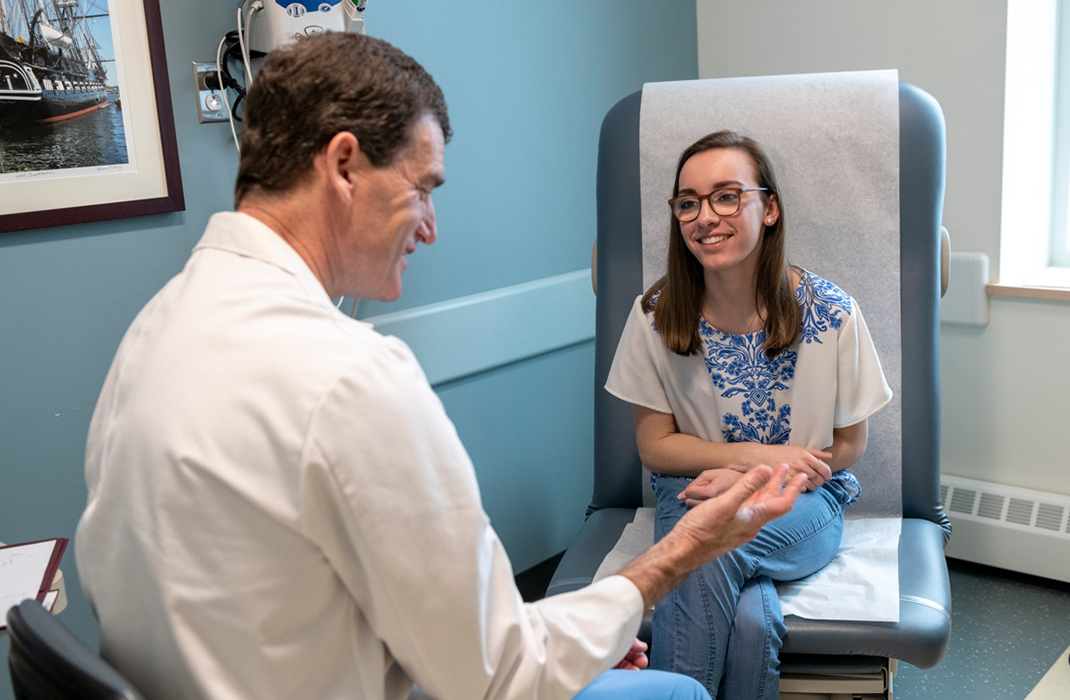-
- Find Care
-
- Visitor Information
- Find a Location
- Shuttles
- Visitor Policies
-
-
-
- Our Virtual Care Options
- Virtual Urgent Care
- Virtual Visits for Primary & Specialty Care
- Online Second Opinions
- Participate in Research
-
- Contact us
-
- For Innovators
- Commercialization Guide for Innovators
-
-
- Research News
- Alzheimer's Disease
- Artificial Intelligence
-
- Overview
-
- Overview
- Getting Started
- New to Mass General Brigham
- International Patient Services
- What Is Patient Gateway?
- Planning Your Visit
- Find a Doctor (opens link in new tab)
- Appointments
- Patient Resources
- Health & Wellness
- Flu, COVID-19, & RSV
- Billing & Insurance
- Financial Assistance
- Medicare and MassHealth ACOs
- Participate in Research
- Educational Resources
- Visitor Information
- Find a Location
- Shuttles
- Visitor Policies
- Find Care
-
- Overview
- Our Virtual Care Options
- Virtual Urgent Care
- Virtual Visits for Primary & Specialty Care
- Online Second Opinions
-
- Overview
- Participate in Research
-
- Overview
- About Innovation
- About
- Team
- News
- For Industry
- Venture Capital and Investments
- World Medical Innovation Forum (opens link in new tab)
- Featured Licensing Opportunities
- For Innovators
- Commercialization Guide for Innovators
- Contact us
-
- Overview
- Information for Researchers
- Compliance Office
- Research Cores
- Clinical Trials
- Advisory Services
- Featured Research
- Two Centuries of Breakthroughs
- Advances in Motion (opens link in new tab)
- Brigham on a Mission (opens link in new tab)
- Gene and Cell Therapy Institute
- Research News
- Alzheimer's Disease
- Artificial Intelligence
-
- Overview
-
- Overview
- Residency & fellowship programs
- Brigham and Women's Hospital
- Massachusetts General Hospital
- Mass Eye and Ear
- Newton-Wellesley Hospital
- Salem Hospital
- Integrated Mass General Brigham Programs
- Centers of Expertise
- Global & Community Health
- Health Policy & Management
- Healthcare Quality & Patient Safey
- Medical Education
- For trainees
- Prospective trainees
- Incoming trainees
- Current trainees
- Continuing Professional Development
- Patient Care
- Patient and Visitor Information
- Quality and Patient Safety
- Our Measures and Methodology
Types of measures
-

Clinical care measures
Clinical care measures are the ones most often associated with hospital quality and safety and required measurements for all health care systems to report. They show how well we achieve the desired performance and outcomes for clinical care. The types of traditional measures that we assess and report on include readmission rates and mortality rates.
-

Process measures
Process measures indicate how well a hospital maintains the health of a patient while they are receiving care. They measure the success and safety of the steps that providers take while administering care to ensure that all institutions across Mass General Brigham are following evidence-based best practices. Examples of process measures include control of chronic illness, glycated hemoglobin testing, door to balloon time, and more.
-

Novel measures
At Mass General Brigham, we go beyond traditional quality and safety measurements to also assess the aspects of care that matter most to our patients. Novel measures are innovative measures that have been identified specifically by our team as tools to evaluate and improve upon patient care. They include patient-reported outcomes measures (PROMs) and enhanced recovery after surgery measures (ERAS).
How we achieve key quality and patient safety measures
Use of the same electronic health record (EHR), a customized data-sharing tool, throughout our system helps to coordinate care and make it easier for physicians to jointly determine the most effective treatment plan for their patients. The Mass General Brigham EHR platform allows for refined communication, less opportunity of error, increased transparency, and improved patient experience.
It has also changed the way we collect, measure, and assess quality of care and safety practices across the spectrum of care at our member institutions. Traditional sources of patient data, such as the Centers for Medicare & Medicaid Services (CMS) and the Healthcare Effectiveness Data and Information Set (HEDIS), are based on billing records and provide an incomplete picture of the patient experience, lacking information. We go beyond this, measuring useful data that our providers document every day from patients across our network—things like screenings, blood pressures, and lab results—to measure patient care holistically and assess if the right care was delivered at the right time. Unlike measures created by external parties, our confidential patient data resides within Mass General Brigham only and allows us to evaluate the quality of the care we deliver in a more timely and accurate way.
In addition to measuring patient safety measures and care outcomes, we regularly survey our patients to learn more about their specific experiences at Mass General Brigham institutions—including how well we communicated with them as their caregivers, how well doctors coordinated their care, and how timely their care was and how willing are patients to recommend their hospital to family and friends.
Mass General Brigham also believes strongly in measuring things that matter, not just things that are required. Examples of our efforts dedicated to measuring things that matter to our patients include robust programs in:
- Patient-reported outcomes (PROMs)
- Enhanced recovery after surgery (ERAS)
- Electronic clinical quality measures (eCQMs)